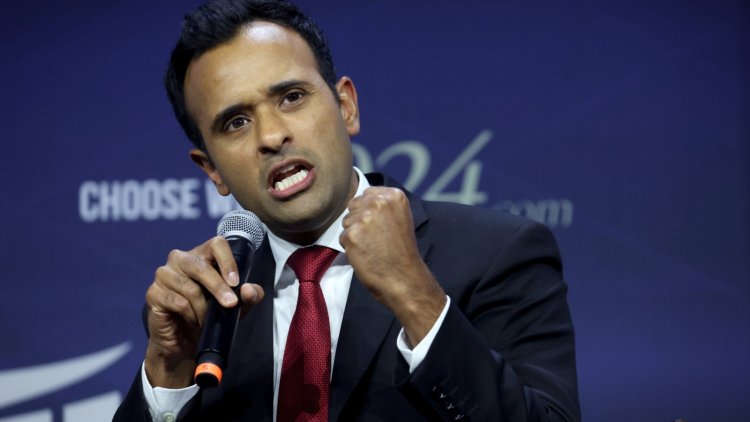India - US: Understanding Vivek Ramaswamy’s Rise
STORIES, ANALYSES, EXPERT VIEWS

Nominations for the US presidential elections will be finalised only next summer with the elections scheduled for the first week of November 2024. For India, the emergence of Republican Vivek Ramaswamy, a rank outsider, is of interest. He emerged strong after a preliminary debate in which Trump did not participate.
Growing political impact of Indian Americans
The main story here, writes C Raja Mohan (senior fellow, Asia Society Policy Institute, Delhi) “is not about the growing political impact of the Indian American diaspora. Kamala Harris is the sitting US vice president, and Rishi Sunak is the Prime Minister of the UK. Nearly 200 persons of Indian origin, according to some estimates, occupy leadership positions in about 15 countries; about 60 per cent of them are in cabinet positions. The Indian diaspora is doing especially well in the Anglo-Saxon world (forget the perennial nativist and liberal ‘anti-colonial’ posturing in India). Members of the diaspora also occupy key positions in the governmental machinery in the Ango-Saxon world. President Joe Biden has appointed nearly 140 Indian Americans to key positions in the administration. Indian-origin men and women also lead top businesses, universities, scientific establishments, and civil society in the English-speaking world. The story, then, is as much about the openness of the Anglo-Saxon world as it is about the talent and adaptability of the Indian diaspora.”
Ramaswamy’s worldview
Ramaswamy’s rise in the Republican Party “says a lot more than about the Indian diaspora…..The 38-year-old Ramaswamy’s sharp debating skills honed at Harvard and Yale (too grating and schoolboyish, some critics say) were only one reason for his significant impact. More important was Ramaswamy’s unabashed support for Trump.”
With age on his side, Mohan writes “Ramaswamy appears to be playing a long game to cultivate the conservative sections of American society. The ideas that he champions have a long lineage in American society—faith, family, flag, individual freedom, small government, meritocracy, and hard work. Ramaswamy is a strong critic of ‘wokeism’, illegal migration, and reservations for minorities in educational institutions. His conservative agenda has an external dimension too. He has dropped anchor in ‘America-First' nationalism and drinks deep from the wells of American isolationism. Trump’s four years hinted at how this sentiment might play out – opposition to alliances, withdrawal from multilateral institutions, and a transactional approach to international relations.”
For India, American isolationism is an unfamiliar terrain
No prudent chancellery in the world, states Mohan “would want to rule out the potential defeat of Biden in the next elections and a setback to America’s internationalism. From Delhi’s perspective, Ramaswamy is saying everything right about deepening the strategic partnership with India. Yet, it is important for Delhi to understand the deeper sources of Ramaswamy’s worldview and its broader implications.
"For the Indian elites, which have dealt all these decades with the US’s internationalist and interventionist policies, American isolationism is an unfamiliar terrain. Ramaswamy’s positions provide a valuable basis to assess the prospects for renewed American isolationism and its impact on the geopolitics of Eurasia and the Indo-Pacific.”
















